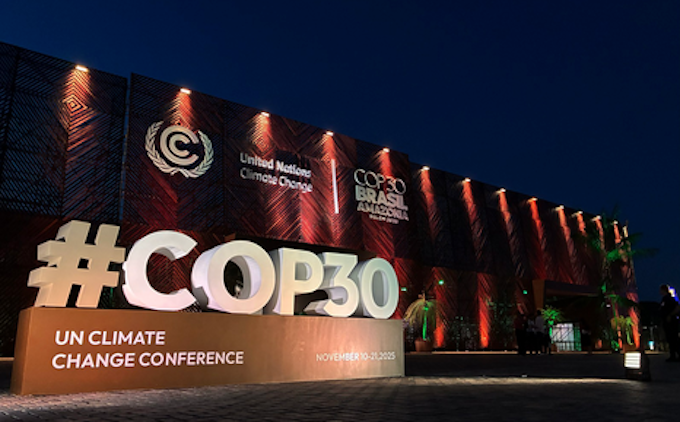As we’ve reported, Trump has haemorrhaged support from his base recently, and for more than one reason. In response to all that, MAGA supporters are supposedly burning their red MAGA hats:
— Butch Connors
ONLY (@Butch_1776) November 15, 2025
Is there really a wave of hat burnings, though? Or is it all just hot air?
MAGA hats off
People are reporting that MAGA has turned on the president since he attacked former Trump loyalist Marjorie Taylor-Greene:
BREAKING: MAGA supporters are burning their hats after Trump attacked MTG for pushing to release the Epstein files. pic.twitter.com/drqAD4QfyC
— Keith Edwards (@keithedwards) November 15, 2025
BREAKING: MAGA is now burning MAGA hats after Trump’s Epstein response today. pic.twitter.com/ikCS5bvR3t
— Brian Krassenstein (@krassenstein) July 12, 2025
We should note that not every image appears to be new or real. The cover image we used, for instance, came from this post:
People are posting this all over social media.
What a sad end to something we all worked so hard for.
I never thought it would end this way. pic.twitter.com/MXacwCSPGe
— ThePatrioticBlonde
(@ImBreckWorsham) November 15, 2025
As people discovered, some of these are old images:
— captive dreamer (@avaricum777) November 16, 2025
Some aren’t burning their hat, but they are speaking out, and again they’re highlighting support for Israel as a dividing issue:
What in the actual fuck!
MAGA is dead! pic.twitter.com/LiDAAdxbNs
— Mark of the BEAST (@MarkOftheBEAS14) November 13, 2025
Many of these people are also repeating what’s becoming the new ‘Make America Great Again’, which is:
America First, America Only pic.twitter.com/XLnZmwN5Ft
— The Matt Walsh Show (@MattWalshShow) November 13, 2025
Regardless of whether or not people are burning their hats, it’s certainly the case that many of his once-loyal supporters are now burning with anger.
I feel like Donald Trump has pulled the rug on his supporters.
All you grifters can enjoy defending every word he says and keep never criticizing him.
I can’t do it anymore.
MAGA is dead.
— Evan Kilgore
(@EvanAKilgore) November 16, 2025
MAGA is burning
The three key issues for Trump right now are:
- His links to the dead paedophile Jeffrey Epstein.
- His hardline stance on migration not going far enough for his base.
- His support of Israel.
This really pisses me off.
Not only is he putting Americans last. He is insulting them in the same breath.
Fucked up. https://t.co/plSybVgDWf
— Adam Crigler (@AdamCrigler) November 12, 2025
Regarding Trump’s support for Israel, there is some variation in how the right are approaching the issue. Some are making a similar point to the left, and saying America shouldn’t be offering unconditional support to a rogue nation which has committed a genocide; others are just straight-up antisemitic.
As an example of the latter, the man burning his hat in the video at the top said:
Alright, so this is a Trump 2020 hat. And if you’re just going to be owned by the Jews, and go against everybody that actually is America First, and cover for pedophiles… then you can fuck off, Trump.
The man’s comments are very much in line with the ‘groyper’ wing of the US right, of which Nick Fuentes is the figurehead:
Pro-Israel Jew Larry Ellison is in the process of buying Tiktok, Paramount, and Warner Bros and he just put Bari Weiss, an Israeli spy, in charge of CBS.
The Jews lost control of the narrative so now they are literally buying more of the media.
— Nicholas J. Fuentes (@NickJFuentes) October 2, 2025
MAGA is dead.
— Nicholas J. Fuentes (@NickJFuentes) November 12, 2025
This is the Civil War inside the GOP:
America First vs Israel First
Christ the King vs “Judeo-Christian”
Free Speech vs Cancel Culture
Which side are you on?
— Nicholas J. Fuentes (@NickJFuentes) November 1, 2025
While America ceasing its unconditional support for Israel would certainly be a positive development, we can’t pretend there aren’t opportunists like Fuentes looking to capitalise on the situation.
People warned it will happen
The rise of antisemitism on the right is something that people warned would happen if Zionists kept arguing criticism of Israel was itself antisemitic (and by ‘Zionists’, we mean supporters of Israel existing as an expansionist Jewish apartheid state in which non-Jews don’t have rights). People warned it would happen because the situation gave the impression that the genocide and preceding repression of the Palestinians was a Jewish phenomenon rather than an Israeli phenomenon.
Take the comments from the man above; while it’s obviously an antisemitic trope to say ‘Jews own politicians’, Trump has been happy to take money from billionaires like Larry Ellison and Miriam Adelson who are big backers of Israel:
Speaking in Israel, Trump suggests he moved the embassy to Jerusalem as a promise to the Adelsons, who he says have paid more visits to the White House than anyone he can think of.
He then says he asked Miriam if she loves Israel or America more and she refused to answer. Insane pic.twitter.com/jg9VXciRgg
— Keith Woods (@KeithWoodsYT) October 13, 2025
When you have a situation in which Israel is committing a genocide and your leader is surrounded by donors who support it, of course it’s going to be easy to convince people who want simple answers that the ‘Jews are secretly running America’.
The reality is that Jewish people aren’t collectively controlling Trump; it’s a handful of selfish billionaires who think they can influence world events as if the world was a chess board. In fact, some of these Israel-backing donors aren’t even Jewish, including Peter Thiel and Elon Musk.
Rightward travel
Reactionary politics are always a response to the current moment. What this means is that politicians, commentators, and influencers constantly need to push things further to rile up the base.
The direction of travel in recent years has been towards a mono culture which is white, straight, and Christian. And as a result, right-wing figures who fall outside this bracket are finding themselves squeezed out:
NO WAY, HELL JUST FROZE OVER: Ben Shapiro just told Matt Walsh and everyone else on the Right, you won’t survive if you refuse to police your own extremists.
He’s pointing to the Young Republicans’ leaked chats (hit by Politico), Hitler jokes, gas‑chamber talk, and slurs.… pic.twitter.com/SZrqOkMXkz
— Brian Allen (@allenanalysis) October 18, 2025
Trump himself promised ‘America First’, and yet clearly he’s running a ‘Billionaires First’ administration. MAGA aren’t ready to accept that the oligarchy is the problem, though, so they’re instead doubling down on blaming minorities and sub-groups.
It’s scary to think the Republicans could descend further after Trump, but at the same time they may obliterate any chance they have of creating an electoral coalition, because they keep freezing out more and more voters:
It’s time.
Repeal the 19th. https://t.co/gJTdKTYLsD
— Joel Webbon (@rightresponsem) November 5, 2025
Featured image via Twitter
By Willem Moore
This post was originally published on Canary.











 Far-right
Far-right 











 Again: Ceasefire according to Israel=“you cease, I fire.” Calling it “peace” is both an insult and a distraction.
Again: Ceasefire according to Israel=“you cease, I fire.” Calling it “peace” is both an insult and a distraction.






